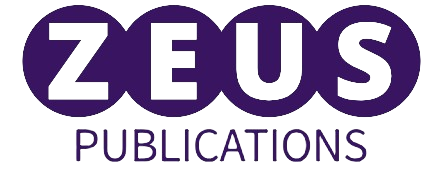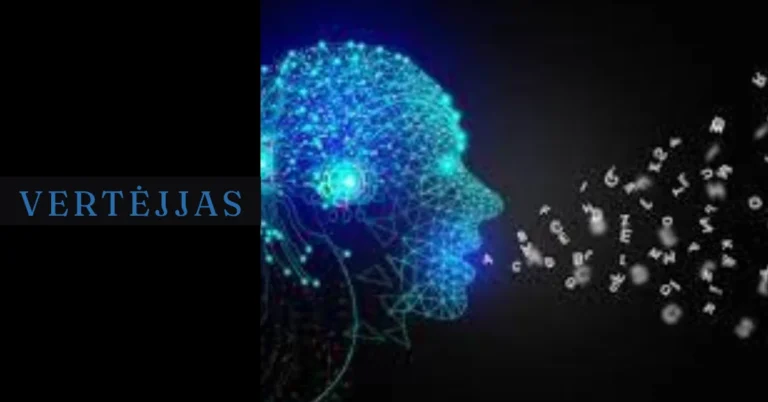Introduction to the importance of global communication
In an increasingly interconnected world, effective communication is more important than ever. Whether you’re conducting business across continents or simply trying to connect with a friend in another country, the ability to convey ideas clearly can make all the difference. That’s where translation comes into play. The word “vertėjjas” may not be familiar to everyone, but it holds significant power in bridging diverse cultures and languages.
As barriers of language dissolve and global conversations flourish, we must acknowledge how essential translators are in fostering these connections. While technology has made strides toward breaking down linguistic hurdles, human touch remains irreplaceable when it comes to understanding nuance and context. Let’s explore this fascinating landscape of translation services and discover how a skilled vertėjjas can elevate your message and expand your reach like never before.
The rise of translation technologies and their limitations
Translation technologies have surged in popularity. Tools like Google Translate and various apps promise instant communication across languages. They seem to make our world smaller and more connected.
However, these technologies come with significant limitations. While they excel at basic translation, they often struggle with nuances—slang, idioms, or cultural references can get lost in the shuffle. Context is vital for accurate messaging, yet machines lack true understanding.
Moreover, automated translations can lead to misinterpretations that might impact professional relationships or business dealings negatively. The subtleties of human emotion and tone are often overlooked by algorithms.
As convenient as these tools may be for casual use, relying solely on them poses risks. A machine cannot replicate the depth of understanding a skilled vertėjjas offers when navigating complex linguistic landscapes.
The role of a human translator in bridging cultural and linguistic gaps
A human translator plays a vital role in bridging cultural and linguistic gaps. They bring more than just words from one language to another; they infuse context, tone, and emotion into every translation.
Language is deeply intertwined with culture. A skilled translator understands these nuances. They know when humor can be used or when sensitivity is paramount.
Humans also possess the ability to interpret meaning beyond literal translations. Subtle idioms or culturally specific references require insight that machines often miss. This understanding fosters genuine connection between speakers of different languages.
Collaboration becomes seamless with a human touch. Translators navigate complex conversations and adapt messages appropriately for diverse audiences.
In a globalized world, their expertise enables businesses to communicate effectively across borders while respecting local customs and values. The impact of their work extends far beyond mere communication; it cultivates trust and mutual understanding among cultures.
Choosing the right translation service for your needs
Selecting the right translation service requires careful consideration. First, assess your specific needs. Are you translating legal documents, marketing materials, or technical manuals? Each type demands a different expertise.
Next, look for specialization. Not all translators are created equal; some focus on certain industries or languages. Ensure that the service has professionals with experience in your field.
Quality assurance is another crucial factor. Investigate whether the company employs rigorous proofreading and editing processes to ensure accuracy.
Customer reviews can provide valuable insights too. Look for feedback regarding responsiveness and reliability from previous clients.
Consider budget constraints without compromising quality. A higher price doesn’t always guarantee better results, so compare several options before making a decision. Your choice of translator can significantly impact how well your message resonates across cultures.
Advantages of working with a professional human translator
Working with a professional human translator offers numerous advantages that technology simply can’t match. One key benefit is cultural sensitivity. A skilled translator understands the nuances of different cultures, ensuring your message resonates accurately.
Accuracy is another hallmark of human translation. While machines can produce quick results, they often misinterpret context or idiomatic expressions. A qualified vertėjjas captures these subtleties, delivering translations that maintain the original intent.
Collaboration plays a vital role too. Professional translators engage with clients to grasp their specific needs and preferences. This tailored approach enhances overall quality.
Moreover, confidentiality matters in many industries—technology, legal documents, or personal communication require discretion that only humans provide reliably.
A professional brings experience and expertise to complex texts. Whether it’s technical jargon or creative content, their insights can elevate your project beyond what automated tools offer.
Common misconceptions about translators and translations
Many people think that translation is just about converting words from one language to another. This oversimplification ignores the nuances of meaning, culture, and context.
Another common misconception is that all translators are fluent in multiple languages. While fluency is essential, a deep understanding of specific subjects or industries often matters more than being bilingual.
Some believe machine translation can completely replace human translators. While technology aids the process, it lacks the empathy and cultural awareness necessary for nuanced communication.
Others assume that translation is a straightforward task with quick results. In reality, quality translations require time and effort to ensure accuracy and relevance.
It’s crucial to recognize these misconceptions when seeking translation services. Understanding what a professional translator offers can lead to better outcomes in any project involving cross-cultural communication.
Conclusion: Embracing the power of translation in a globalized world
The world is more connected than ever, and the importance of effective communication cannot be overstated. As businesses expand globally and cultures intertwine, the need for accurate translation becomes crucial. While technology plays a significant role in facilitating this exchange, it’s essential to remember that machines can only do so much.
Human translators bring an invaluable depth of understanding to their work—bridging not just languages but also cultural nuances that a mere algorithm might miss. When selecting a translation service, consider your unique needs. A professional translator can provide insights that enhance clarity and foster genuine connections.
Dispelling common misconceptions about what it means to be a “vertėjjas” helps highlight the skills these individuals possess. They are more than just language converters; they are cultural ambassadors who help us navigate diverse landscapes with empathy and precision.
Embracing the power of translation means recognizing its role as a vital tool in fostering global understanding and cooperation. As we continue to engage across borders, investing in quality translations will undoubtedly pave the way for richer interactions on every level.
FAQs
Q: What is a Vertėjjas?
Ans: Vertėjjas is a translator who facilitates communication between people who speak different languages, ensuring accurate and effective exchange of information.
Q: Why is the role of a Vertėjjas important?
Ans: The role of a Vertėjjas is crucial because they help bridge language barriers, enabling businesses, academic institutions, and cultural groups to interact and collaborate across borders.
Q: What skills are essential for a Vertėjjas?
Ans: A Vertėjjas needs strong language skills, cultural understanding, attention to detail, and the ability to convey meaning accurately and contextually between languages.
Q: How does a Vertėjjas contribute to global communication?
Ans: Vertėjjas facilitates clear communication and understanding between diverse linguistic groups, helping to build connections and foster cooperation in a globalized world.
Q: In what contexts might a Vertėjjas be needed?
Ans: Vertėjjas is needed in various contexts including international business negotiations, academic research, diplomatic relations, and cultural exchanges, among others.

